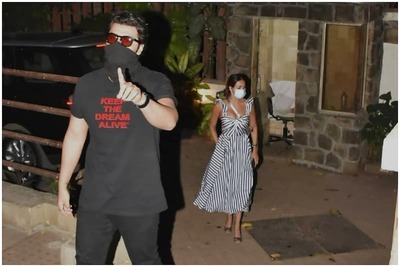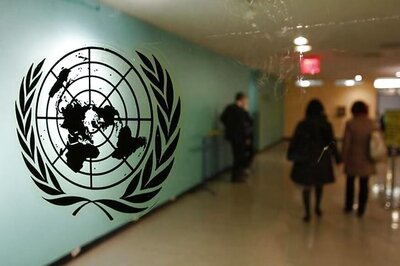
views
For this story, News18 partnered with Khabar Lahariya, a digital media organisation working out of Bundelkhand with an all-women network of reporters, most of whom are Dalit.
Uttar Pradesh may be known for a lot of things, but from a woman's point of view - it is the worst place to be alive.
The recent National Crime Records Bureau (NCRB) data, detailing crimes in the country – types, kinds, numbers—revealed quite a few disturbing findings concerning crimes against women and other marginalized groups in India. In the 2016 NCRB report, the country’s most populous state has topped the list of crimes against women.
The general crime rate witnessed a spike of 83% – from 21 in 2007, the sheer number of crimes against women reported every hour jumped to 39. Juxtaposed against this statistic is the shocking fact that conviction rate in 2016 dipped to an all-time low.
In 2016, UP accounted for 9.5% of the total IPC crime reports in the entire country. It also recorded 14.5% of the total cases of crimes against women, and for 12.4% of the total number of rape cases in all of India, second only to Madhya Pradesh, which recorded 12.5%.
Reporting from the badlands of Bundelkhand, one of the most intensely patriarchal and regressive regions of Uttar Pradesh, we know that these are only the reported figures. More often than not, the deeply oppressive culture of silence, shame, and humiliation – so familiar to women around the world in one form or the other –ensures that most acts of violence and cases of rape, harassment, torture, are stifled for good in the hinterland.
These are places untouched by the global #MeToo revolution.
We have seen and reported on the sinister reflections of those NCRB findings in the districts of Mahoba, Lalitpur, Chitrakoot, Banda, among others, in rural Bundelkhand. There are cases after cases of dowry deaths, molestations, rapes, gangrapes, and brutal torture – women who were beaten up, murdered and even burnt alive.
We reported on several cases of horrific rapes. The perpetrators were family members, spiritual healers and people who wanted to seek revenge.
One such spine-chilling case came to light from Lalitpur earlier this year, when a woman who had been raped by five men continuously for months in 2016, was tried by the village panchayat and deemed guilty.
The matter came to light when the perpetrators attempted to orchestrate an abortion for the woman who had become pregnant, but failed. The news spread across the village, after which the panchayat decided to weigh in, in the name of “gaon ki izzat" – they “ordered" an abortion too. And there followed not one or two or five, but 21 panchayat sessions to decide on the fate of the woman and her family – a pronouncement of virtual excommunication. The woman and her family were subjected to nothing short of being socially ostracized.
“They didn’t give us access to food, water, anything. We couldn’t even walk on the streets," the woman’s family member told Khabar Lahariya.
He said that he wanted to clear their names in the village. “That’s very important for us. After all, it’s a matter involving over 1,000 people," he said—the desperation apparent in his voice.
At the end of their tether, the family finally sought the aid of the police. They filed charges against the accused rapists, who have since been arrested and booked for rape. But, there is no legal respite for what the family is facing every day.
According to the Commanding Officer at the police station, Himanshu Gaurav, since it is a matter involving a panchayat’s decision, the police cannot take any action unless the family approaches them with that specific complaint. If they do, he promises strict action against the panchayat for “making such an unconstitutional decision".
When KL tried to contact the village pradhan, who is meant to look after the best interests of his village folk, he refused to open the door, let alone comment.
Amind the grave and dreary silence, what the woman said to us, off-camera, still echoes in our ears, “When they would rape me, they would threaten me non-stop, saying they would kill me and my family if I ever spoke up." She pauses, and adds, “They forced themselves on me multiple times."
It comes up regularly – this mention of force. Another woman speaks of the torture, with her face covered with a pallu, her voice soft. “Nankua just barged into the house. I was alone that night. He tore off my clothes and forced himself on me", she said.
The woman from Chitrakoot, recounts the horrors when an acquaintance of her family raped her.
Another woman in Chitrakoot who had been visiting the holy site of Ram dham – it is worshipped as the place where Ram spent his 14-year exile with Sita and Lakshman – was gangraped by a local spiritual healer who goes by the name of Arjun Baba and his accomplices. “He shoved me to the ground, and called his friend when he was done", she said.
In a case that mirrored the horrific Badayun case of 2014, a minor was raped when she went to relieve herself in the fields in Banda’s Mahui village.
There are more, too many more. Reports of crimes against women have been relentless, their frequency going up feverishly in the last year. And, the worst part is, nothing is changing.



















Comments
0 comment